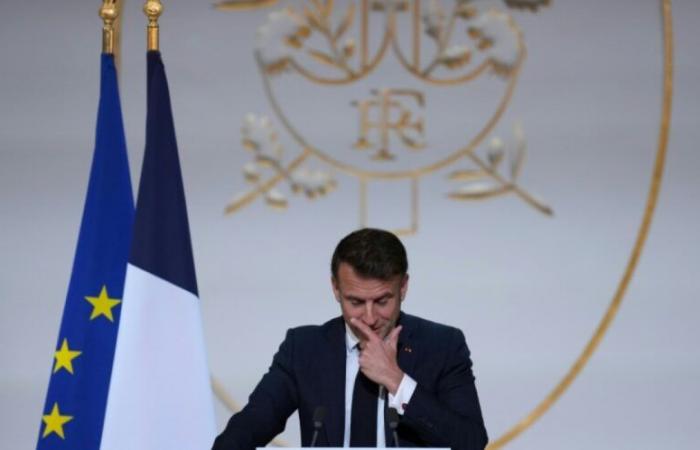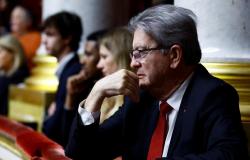Questioning the future American administration on all diplomatic issues, he also attacked the boss of , especially in Germany.
“The Ukrainians have to carry out realistic discussions on territorial questions and only they can lead them,” declared Mr. Macron before the French ambassadors gathered at the Elysée, warning that there would be “no quick solution and easy “. Russia has in fact seized around 20% of Ukrainian territory and has accelerated its progress in the east in recent months.
Negotiations. The Europeans will nevertheless have to “build security guarantees” for Ukraine, said the head of state, stressing that Washington will have to help them “change the nature of the situation and convince Russia to come to the negotiating table “. Conjectures have been rife for weeks about the conditions for future peace negotiations, due to the return on January 20 to the White House of Donald Trump, who promised to quickly end the war, without specifying how.
Fatigue. kyiv hopes for strong decisions but also fears a drop in American support, the elected president having repeatedly criticized the billions of dollars provided to kyiv. A “capitulation of Ukraine cannot be good for Europeans and Americans,” insisted Emmanuel Macron, judging that the “credibility” of Westerners would be “undermined” if they agreed to “compromise” due to a “fatigue” with regard to the conflict.
In front of the ambassadors, the president also estimated that in the Middle East, Iran was “the main strategic and security challenge for France, the Europeans, the entire region and well beyond”. “The acceleration of its nuclear program brings us very close to the breaking point,” he continued, before denouncing Tehran’s involvement “in Russia’s war against Ukraine” and its “support for dangerous groups” in the Middle East.
Accord. “Iran is a risk if we leave them (the Iranians) out of the picture” and will be a priority in the dialogue with the future Trump government, said Mr. Macron, advocating a “demanding” and expanded agreement on Iranian nuclear power. , which is still the subject of discussions between Tehran and the great powers.
On Syria, following the fall of Bashar al-Assad who fled at the beginning of December after ruling his country with an iron fist for 20 years, the French head of state called for “looking without naivety at the regime change” and promised not to abandon the Kurdish fighters, allies of the West in the fight against jihadism.
Damas. France will support “over the long term” the transition in favor of “a sovereign Syria, free and respectful of its ethnic, political and confessional plurality”, he insisted. The first steps of Ahmad al-Chareh, the leader of the radical Islamist group Hayat Tahrir al-Sham (HTS) which led the coalition that seized Damascus, are being closely scrutinized. On Friday, he received the heads of French and German diplomacy, Jean-Noël Barrot and Annalena Baerbock, an unprecedented meeting at this level with Western officials.
-Mr. Barrot will for his part give a press conference late Monday with his Polish counterpart Radoslaw Sikorski, the guest of honor at this 30th edition of the ambassadors’ conference. Poland, which strongly supports neighboring Ukraine and serves as a logistical axis for Western military aid, took over the rotating presidency of the European Union on January 1.
Diplomacy. The conference of ambassadors, an essential meeting of French diplomacy which takes place each year at the end of August-beginning of September, could not take place in 2024 due to the Olympic Games in France, raising questions and adding to the unease affecting the Ministry of Foreign Affairs.
In 2022, a reform providing for the abolition of the two historic bodies of French diplomacy caused an internal outcry, with diplomats fearing a loss of skills from the third largest global network, behind those of the United States and China.
The 2025 draft budget, still not adopted due to the political crisis in France, provides for a drop of 4.3% for the State’s external action, to 3.3 billion euros. The share of development aid, also managed by the Quai d’Orsay, fell by 23%, to 2.4 billion.
Célia MELT
© Agence France-Presse






